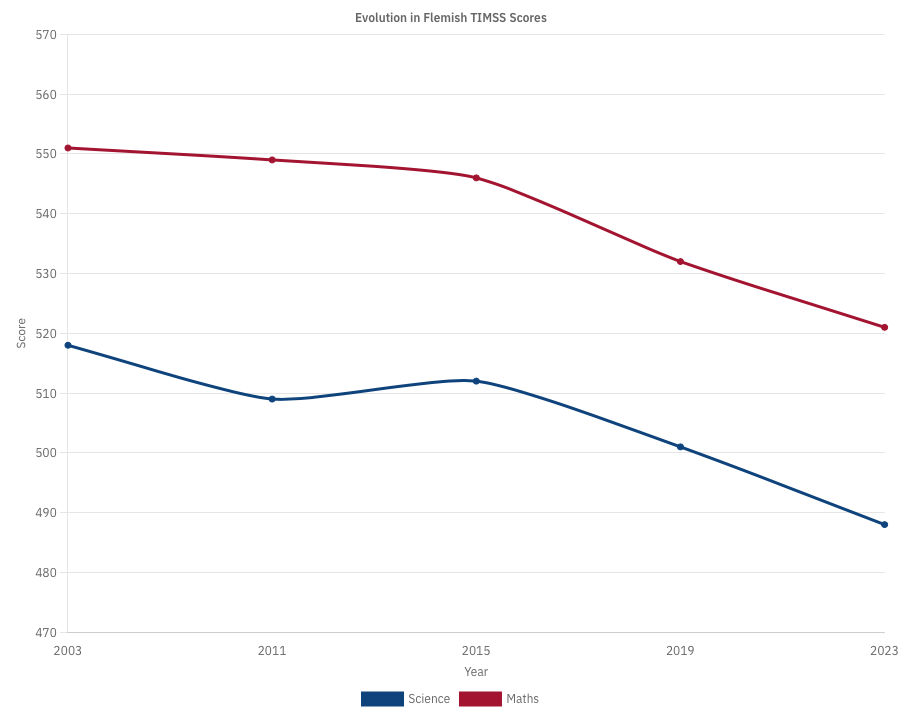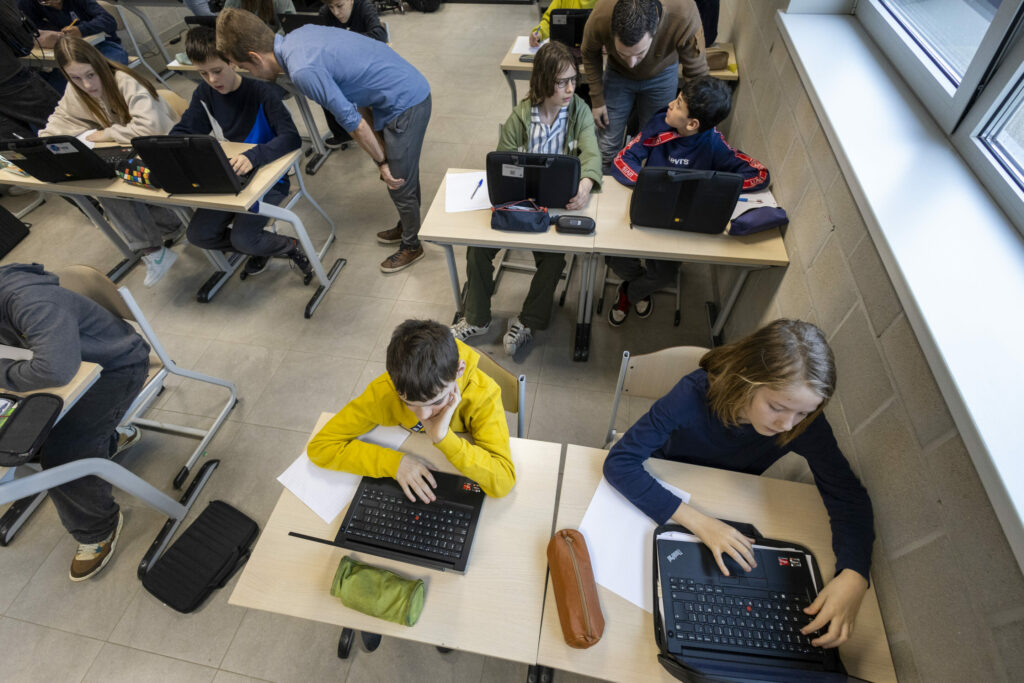Dutch-language education was previously among Europe's best in the Trends In Mathematics and Science Study (TIMSS), but quality of education has reached a low point. Pupils who don't speak Dutch at home are struggling the most.
Following an unprecedented drop in literacy, science and maths performance in secondary schools, the latest international TIMSS survey showed the knowledge levels of ten-year-olds in Dutch-speaking education are falling sharply. No scores were released for Belgium as a whole, as education is a competence of the communities. However, figures for Wallonia mirrored the trend in Flanders. This demonstrates that overall Belgium's education system is failing students in maths and science.
The study compares fourth-grade primary school pupils' results for maths and science. When Flanders first participated in the survey, pupils in Dutch-speaking schools were European champions for maths, with a score of 551 out of 1000 (most countries fall between 400 to 600 points). Two decades later, Flanders' learning performance has fallen to 521 points.
This puts Flanders in 24th place out of 58 participating regions, down from 17th place in 2019 and 11th spot in 2015.

Credit: TIMSS / The Brussels Times
For science, Flemish pupils remain in 35th place, the same as in 2019. However, the score did fall from 501 in 2019 to 488 last year, putting the Flemish education system below the international average (494) and at the bottom of the European rankings.
Why the drop?
Past studies have shown that the Covid-19 pandemic had an effect on learning. "Pupils lacked [in-person] teaching, demonstrations, and working out equations together, which are all key parts of learning maths," Ria Van Huffel, coordinator of the Flemish mathematics test at VUB, told The Brussels Times.
The language a child speaks at home also plays a key role. The TIMSS study showed that native speakers perform 7.5% better in maths compared to pupils who never hear Dutch at home. For sciences, the difference even rises to 12.1%. In other EU countries, this correlation is less pronounced.
Four in ten pupils in the Flemish education system have a migration background. Flemish Education Minister Zuhal Demir (N-VA) noted that pupils' performance will improve just by speaking Dutch at home. "Dutch is the language that connects every pupil and makes good teaching possible. This study shows how important it is to keep fighting for Dutch," Demir said.
However, Van Huffel stressed that the problem is home language more broadly. "For maths, it is much more important that pupils have a basic language in which they can communicate properly and in which they understand nuances so that they can also recognise nuances in Dutch."
Fixing faults
Van Duffel says the newly appointed Flemish Government has a challenge ahead. She believes one solution lies in shifting the focus off the teacher: "Not everything can and should be solved by a teacher. Perhaps the expectations we have of teachers as a society have become too broad."
Demir is also planning to tackle the issues in education from a younger age, as one in four children start primary education with inadequate literacy and numeracy skills. "Just like in Ireland and England, we are going to start demanding more from children: more knowledge, creativity and eagerness to learn." For the first time, there will be minimum targets focusing on vocabulary and listening skills from kindergarten.
For primary education, she is calling on the umbrella organisations in education to create temporary curricula with a focus on Dutch language STEM subjects (science, technology, engineering and maths). Catholic Education Flanders confirmed on Wednesday that it will reform its primary education curriculum to ensure a solid foundation of these subjects.

